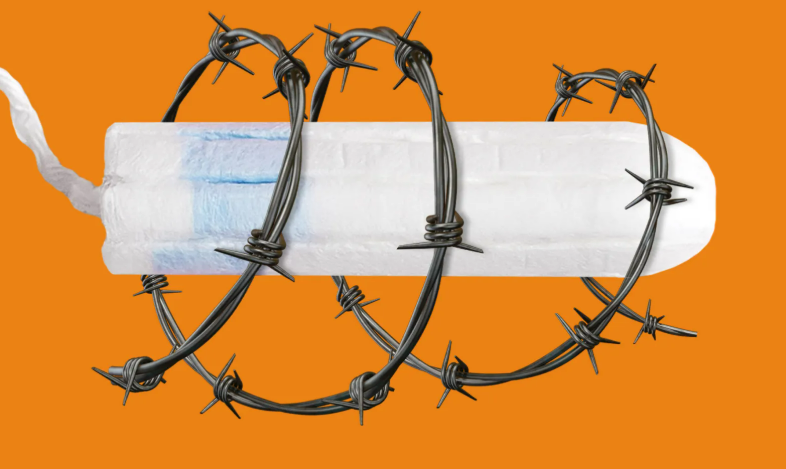Commentary - I'm an Incarcerated Nurse

The following commentary "I'm an Incarcerated Nurse - Women's Health in Prison is Hell and Will Only Get Worse Under Trump" is written by Kwaneta Harris, and appeared in Rolling Stone Magazine.
Excerpts are included below.
*****
When I was working as a nurse in Detroit from 1997 to 2007, I helped 11-year-olds deliver babies, saw women diagnosed as “just anxious” die of heart failure, and witnessed ectopic pregnancy pain dismissed as drug-seeking behavior. And that’s only the tip of the proverbial iceberg. I know what it’s like to provide care to struggling women — and I know what it’s like to be on the other side of the stethoscope. Our healthcare system can be racist, sexist, and broken — and that’s outside of the prison walls.
I’ve been incarcerated in Texas women’s prisons since 2009, where I’ve become a de facto nurse for many of the hundreds of women inside. You’d think that with such a large population, the institution would have adequate health care, but, in many ways, we’re third-class citizens, scrounging for basic supplies and care. Forget real medical issues or, God forbid, an unwanted pregnancy. I’ve seen true tragedy unfold behind these concrete walls over the course of the past 15-plus years — and as the Trump administration takes hold on the outside, I fear that our reality could become American women’s future.
“With this new administration and Congress, we’re really on the precipice of a fundamental shift away from health coverage and health care,” says Gretchen Borchelt, VP for reproductive rights and health at the National Women’s Law Center. “Right now, Congress is debating these massive Medicaid cuts, which will affect low-income folks throughout the country, and, in particular, women in their reproductive years, two-thirds of whom are enrolled in Medicaid. There is an outright hostility right now toward health access and health care. Women in prison are the canary in the coal mine.”
In my Texas prison, incarcerated folks do have access to health care — but the bare minimum. We get annual dental cleanings and physicals (plus mammograms for those over 40), but additional injuries or illnesses come at our own cost. Given the fact that most of us have nothing, and work prison jobs for free, a flu, cold, or pulled muscle could wipe out our entire life savings. (A spokesperson for the Texas Dept. of Criminal Justice says that patient should never pay more $100 a year in medical costs, and that “if a patient requires immediate care and must receive medical services at a hospital outside of the prison, that cost is covered by the university medical partners, which receive money from TDCJ.”)
Prisons favor health care strategies that take control away from women, and this is something that should concern and outrage all women. Our bodies’ basic biological functions become weapons of control — this is true from the prison to the state legislature to the U.S. Supreme Court, as evidenced by the dissolution of Roe v. Wade. “Pregnancy has already been criminalized, but it’s getting worse,” Borchelt says. Pregnancy Justice, an advocacy organization defending the rights of pregnant people, documented more than 200 cases in the year after Roe was overturned, in which a pregnant person faced criminal charges for conduct associated with pregnancy, pregnancy loss, or birth.
As anti-women strategies of control and coercion become more deeply embedded in U.S. laws, our experiences on the inside could become the norm — if we’re not careful. Women outside of prisons will have to learn to get creative like their incarcerated sisters, to take back control over their bodies that politicians are steadily trying to capture. Women on the outside can learn from our experiences and us — if they’re willing to listen.
*****
You can read the full commentary "I'm an Incarcerated Nurse - Women's Health in Prison is Hell and Will Only Get Worse Under Trump" at the Rolling Stone Magazine website.
Kwaneta Harris is an incarcerated journalist from Texas. She is a member of the mentorship program Empowerment Avenue, which pairs writers with editors in the outside world to hone their craft and pitch stories to the media. You can also subscribe to her Substack, "Write or Die" where she discusses her firsthand experiences from Texas women's prisons on how the intersection of gender, race and place contribute to state-sanctioned, gender-based violence.










